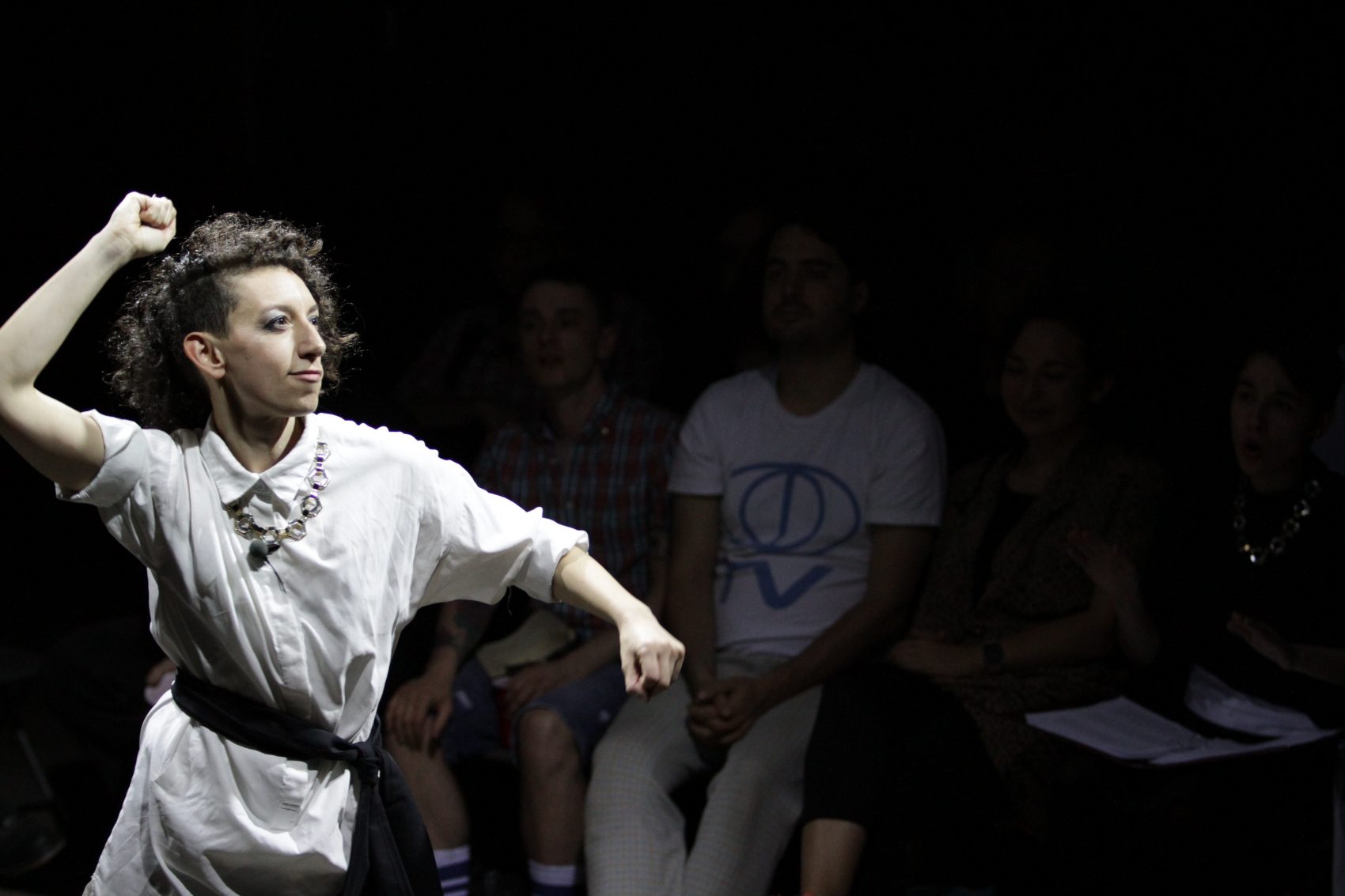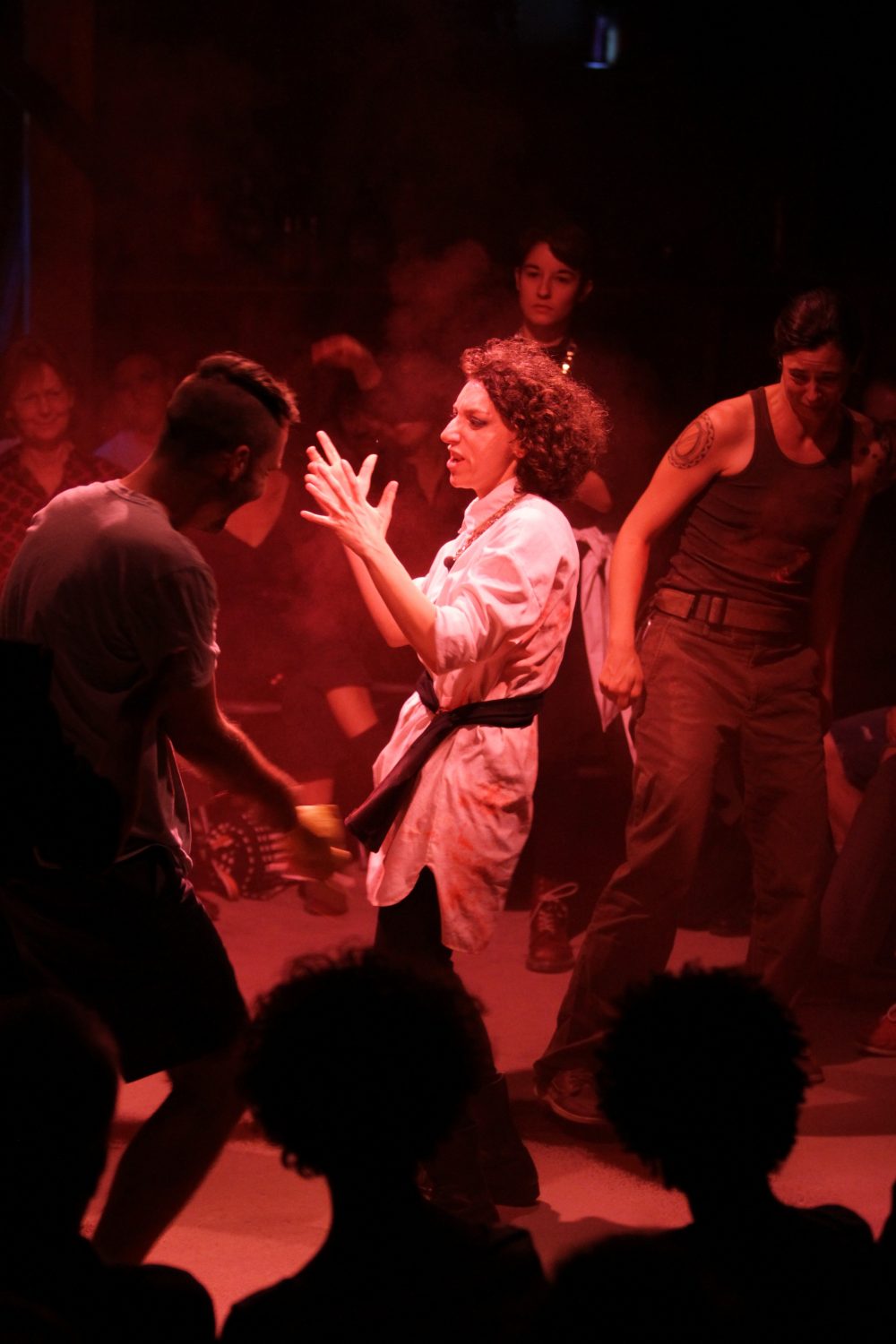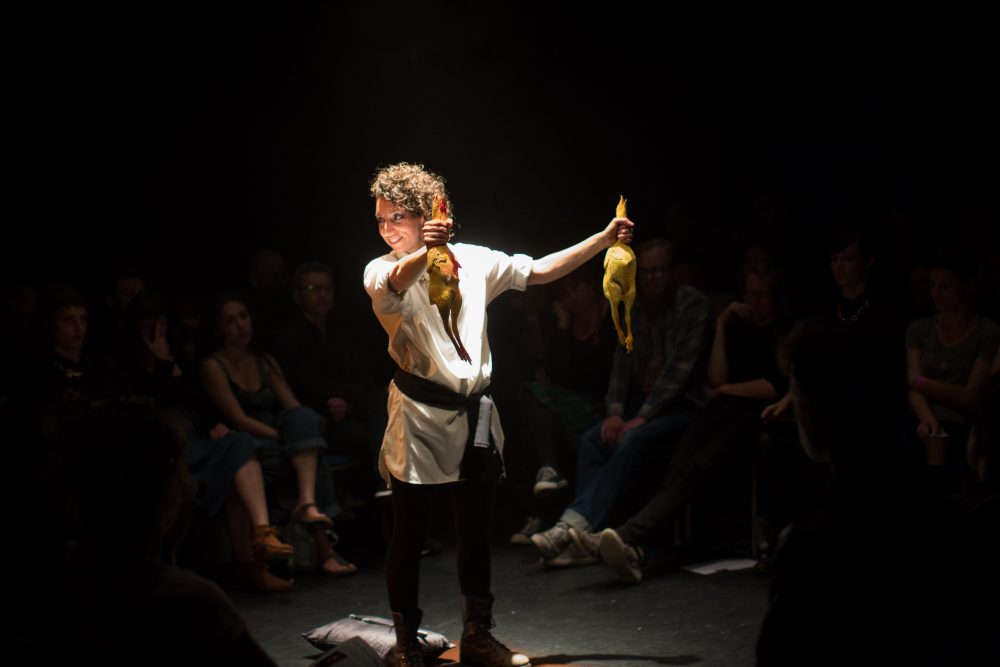Advertisement
Embracing Envy, 'Our Carnal Hearts' Gets To The Core Of Inequality At The Oberon

A stentorian voice, crackling with static, intones something about “millionaires and billionaires and executives on Wall Street” on a recorded loop. Four singers repeat fractured bits of these phrases, creating a mildly unsettling cacophony. And for a moment this seems like much more of a barbed statement than you quite feel like dealing with the day after Donald Trump is elected president.
But even if it addresses unequal distribution of wealth, everyday pettiness and above all, envy, “Our Carnal Hearts” turns out to be a fun and funny experience. Driven by the immensely charismatic performance of Rachel Mars, who wrote the piece, the one-act becomes a social event that nevertheless points to the hypocrisies embedded in our social exchanges. And on Wednesday, its first night at American Repertory Theater’s Oberon, it proved therapeutic as well. The short run goes through Saturday, Nov. 12.
Mars is a British performer who lives and works between genres; on her website she calls herself a “performance maker” working in the fields of theater, “live art” and comedy. She performs “Our Carnal Hearts” in the round (or, more precisely, in the square) with assistance from four vocalists, seated in the audience.

Instantly likable and affably offbeat, Mars commands attention mostly from the center of the playing space but sometimes also from microphones posted around the room, when Anna Barrett’s lighting design goes dim and Mars’ voice becomes that of an omniscient narrator. The text of the collage-based piece is something poetic and impressionistic, mixing bits of stories, comedic monologues and Q&A sessions with the audience. It's interspersed with songs composed and arranged by Louise Mothersole, who also sings.
The spine of the show is a kind of modern-day folktale, reprised at different times, about a supernatural being who arrives at someone’s door with an interesting offer: an invitation to wish for anything you want, with the understanding that someone you know — a neighbor, a peer, a frenemy — will receive the same reward but twice as much of it. Audience members are invited to consider their own responses to the offer.
One very funny song includes a recitation of self-conscious humblebrags. (Example: “Amazon just recommended my own book to me. Hashtag: awkward.” And: “I’m on my way to Oberon in Boston to do my show. Hashtag: feeling blessed.”) A chorus of “Look at me/ Don’t look at me” underlines the ambivalent mixture of pride and inadequacy embodied in such social media posts. To say too much is almost to ruin the punchlines, but for one particularly engaging bit of audience participation, Mars invites the audience to repeat a message of congratulation with increasing levels of sarcasm. The show ends with a chilling statement about the relationship between desire and spitefulness.

What delivers the whole exercise from bitterness or cynicism is that the point seems to be that we should grant ourselves permission to feel envy, to be present with that part of us that, say, feels undermined by a friend’s success. Mars perhaps endorses the emotion with too much glibness, though, and I didn’t always feel that ideas about these complicated feelings are interrogated so much as joked about. There are some moments that even seem at face value to reprise themes from Gordon Gekko's "Greed is good" speech in Oliver Stone's film "Wall Street." At a time when income inequality is a very real problem, Mars is a little too casual in her seeming endorsement of behavior that ravages the social fabric. One suspects the layers of irony are lain thicker here in some places than in others.
There are a few overly familiar observations about the shallowness of social media, but Mars does well to go beyond that. I’d like another crack at seeing the show, or to read the text: It’s artfully crafted, with strategic use of repetition and with the ear of a poet. I’m sure I missed details in (and sometimes, the point of) some of the allegorical stories told in voiceover.
“Our Carnal Hearts” plays in a brisk 60 minutes or so, after which Mars invites the crowd to stick around and socialize. I didn’t take the opportunity to chat with her, but I’d love to hear her hold forth on any number of topics. At a dark moment in our national story, the chance to watch and participate in some forward-looking art and then chat about it over a beverage surely left many among the audience feeling a bit #blessed.
